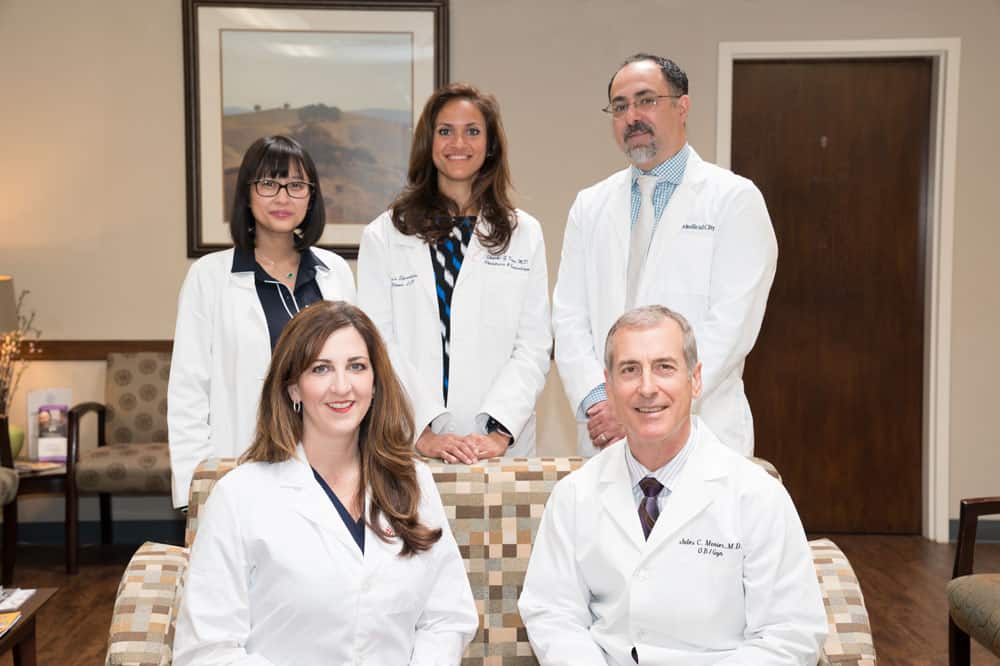Myomectomy Surgeons

Fibroid tumors consist of muscular tumors that grow in the wall of the uterus and are almost always benign (not cancerous), with rare cases (less than 1 in 1,000) resulting in cancer. About 20 percent to 80 percent of women develop fibroids by the time they reach age 50. Even though many women do not experience troublesome symptoms, certain women living in the Plano will require a uterine fibroid treatment, such as a myomectomy.
Myomectomy Overview
Fibroid tumors are a common female health problem. They consist of muscular tumors that grow in the wall of the uterus and are almost always benign (not cancerous), with rare cases (less than 1 in 1,000) resulting in cancer. Fibroid tumors can grow as a single tumor, or there can be many of them in the uterus. They can be as small as an apple seed or as big as a grapefruit. About 20 percent to 80 percent of women develop fibroids by the time they reach age 50. Even though many women do not experience troublesome symptoms, certain women living in the Plano, Frisco and Dallas, Texas communities will require a uterine fibroid treatment, such as a myomectomy, performed by a Women’s Specialists of Plano physician.
Fibroid Tumor Symptoms
Most fibroid tumors do not cause any symptoms, but some women with fibroids can have:
- Painful periods
- Very heavy bleeding
- Bloating or a feeling of fullness in the pelvic area
- Swollen or enlarged abdomen
- Frequent urination
- Pain during sex
- Lower back pain
- Complications during pregnancy and labor
- Reproductive problems, such as infertility, which is very rare
Your doctor may find that you have fibroids during a regular pelvic exam to check your uterus, ovaries, and vagina. The doctor can feel the fibroid with her or his fingers during an ordinary pelvic exam, as a (usually painless) lump or mass on the uterus. To analyze the inside of your abdomen and uterus, your doctor will most likely order an ultrasound, MRI, X-ray or a CT scan.
Most women with fibroids do not have any symptoms. For women who do have symptoms, there are treatments that can help. Talk with your doctor about the best way to treat your fibroids. She or he will consider many things before helping you choose a treatment.
Uterine Fibroid Treatment
Some factors to consider when choosing a uterine fibroid treatment plan:
- Whether or not you are having symptoms from the fibroids
- If you might want to become pregnant in the future
- The size of the fibroids
- The location of the fibroids
- Your age and how close to menopause you might be
If you have fibroid tumors but do not have any symptoms, you may not need treatment. Your doctor will check during your regular exams to see if they have grown. If you have fibroid tumors and have mild symptoms, your doctor may suggest taking medication. Over-the-counter drugs such as ibuprofen or acetaminophen can be used for mild pain.
What is a Myomectomy?
If you have fibroids with moderate or severe symptoms, surgery may be the best way to treat them. A myomectomy (meye-oh-MEK-tuh-mee) is a surgery to remove fibroid tumors without taking out the healthy tissue of the uterus. This is best for women who wish to have children after treatment for their fibroids or who wish to keep their uterus for other reasons. However, if your fibroids were embedded deeply in the uterus, you might need a cesarean section to deliver. Myomectomy can be performed in many ways. It can be major surgery (involving cutting into the abdomen) or performed with laparoscopy, hysteroscopy, or da Vinci robotic surgical system. The type of surgery that can be done depends on the type, size, and location of the fibroid tumors. After myomectomy new fibroids can grow and cause trouble later. All of the possible risks of surgery are present and depend on how extensive the surgery is. However, it is advantageous to perform surgery in the least invasive way possible while still getting optimal results.
If you are suffering from symptoms associated with fibroid tumors and would like additional information on a myomectomy, or the robotic myomectomy uterine fibroid treatment, please contact the Women’s Specialists of Plano office located in the Plano, Frisco and Dallas, Texas communities.
